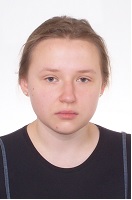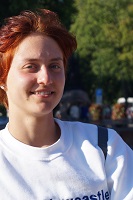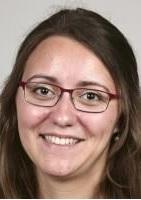In October we have the pleasure of welcoming a new cohort of the Herchel Smith Phd Students to the University of Cambridge!
The 2018/19 academic year will mark the 10th anniversary of the Herchel Smith Studentships, which are considered ones of the most prestigious at the University. Bequeathed to both Harvard University and University of Cambridge by the distinguished chemist Dr Herchel Smith, the scholarships give an opportunity for early-career scientists to work on their PhD in life sciences.
We warmly welcome Diana, Manuela, Vytaute and Natalija and we hope they have a great time at Cambridge!
Read more about the Herchel Smith Studentships here.
|
Diana Arman Department of Physiology, Development and Neuroscience (PDN) Diana is pursuing a PhD in Professor Andrea Brand’s lab at the Gurdon Institute, investigating systemic and local signalling in nutrition-dependent reactivation of neural stem cells in Drosophila melanogaster. She obtained her MSc in Neuroscience degree at the University of Oxford in 2018, where she worked on post-transcriptional regulation in neural stem cell development. During her undergraduate studies at Indiana University, Diana worked on mass spectrometry analysis of cannabinoid receptor 1 phosphorylation, spatial and olfactory working memory systems in rodents, as well as completed a project on cerebral amyloid angiopathy at Rockefeller.
|
|
|
Vytaute Boreikaite MRC Laboratory of Molecular Biology (LMB) I was born in Lithuania and came to Cambridge for my undergraduate studies. I read Natural Sciences at Queens’ College, where I specialised in Biochemistry and developed a strong interest in structural biology. I did my Part III project in Professor John Walker’s group at the MRC Mitochondrial Biology Unit, where I worked on the biophysical characterisation of the inhibitor protein of ATP synthase. Prior to that, I carried out a summer project in Dr Lori Passmore’s group at the MRC Laboratory of Molecular Biology. This October, I am returning to this laboratory for a PhD to study the structure and function of protein complexes that regulate polyA tails of mRNAs.
|
|
|
Natalija Stepurko Department of Biochemistry During my undergraduate in in Newcastle University, I secured Amgen Scholarship to come for a summer studentship to Dr Marko Hyvonen’s lab at the University of Cambridge. The project I worked on was challenging to me in all its aspects, but at the end of it, I saw the beautiful story of how protein behaviour and function are affected by only a few extra amino acids at its terminus! I was fascinated by the research conducted in that lab and I asked Dr Marko Hyvonen about the possibility to do a PhD under his supervision, saying that I don’t care which protein to work on as long as I can study the fundamental aspects of protein biology. I am starting a PhD in his lab that is focused on the dissecting signalling mechanism of TGF-β receptors. The project, which I hope will challenge me and allow to progress as a researcher.
|
|
|
Manuela Zimmermann Department of Chemistry After graduating, with the highest honours, in Chemistry and Biochemistry from the University of Zurich, Switzerland, Manuela now continues her passion for the interdisciplinary natural sciences with a PhD in Biophysical Chemistry in the Knowles group at the University of Cambridge. Her thesis focusses on understanding the organisation of matter on the mesoscopic scale. By applying physical principles to biological systems, Manuela and her collaborators aim to obtain key insights into the mechanisms of protein self-assembly and subcellular organisation. Both aspects are crucial for cellular function, and thus a range of pathological conditions, including Alzheimer's and Parkinson's disease, or type II diabetes, are linked to problems in controlling protein structure on the supramolecular level.
|
|




